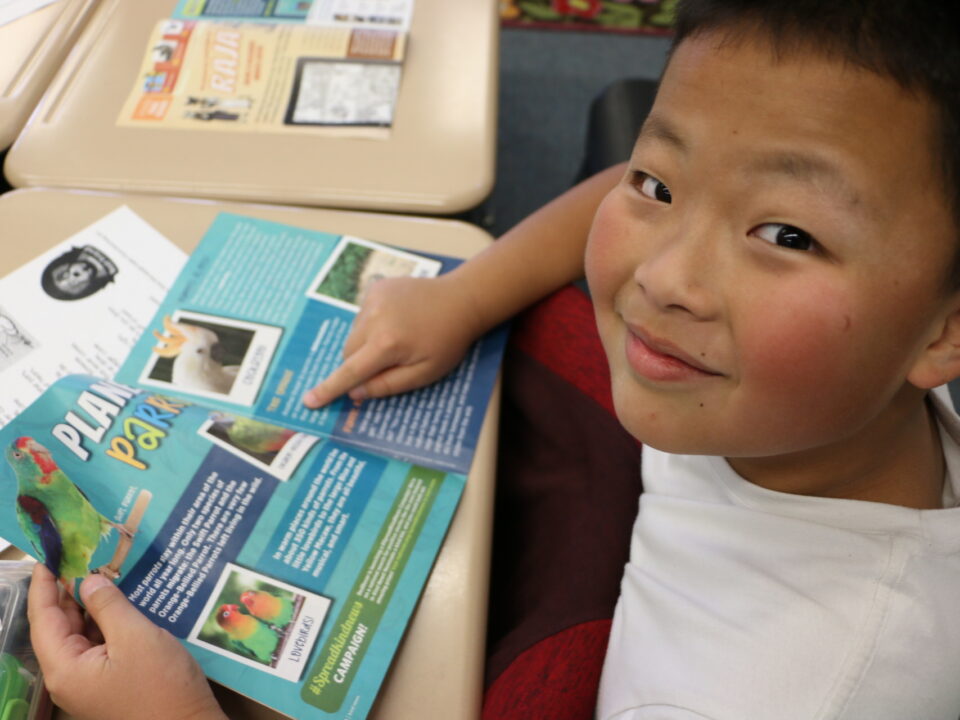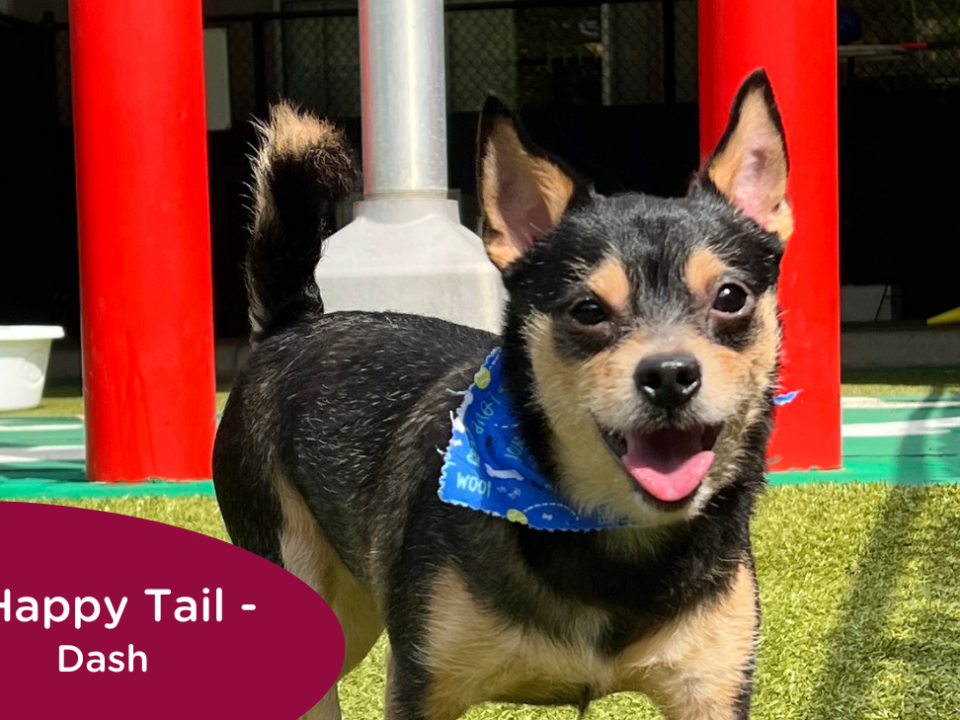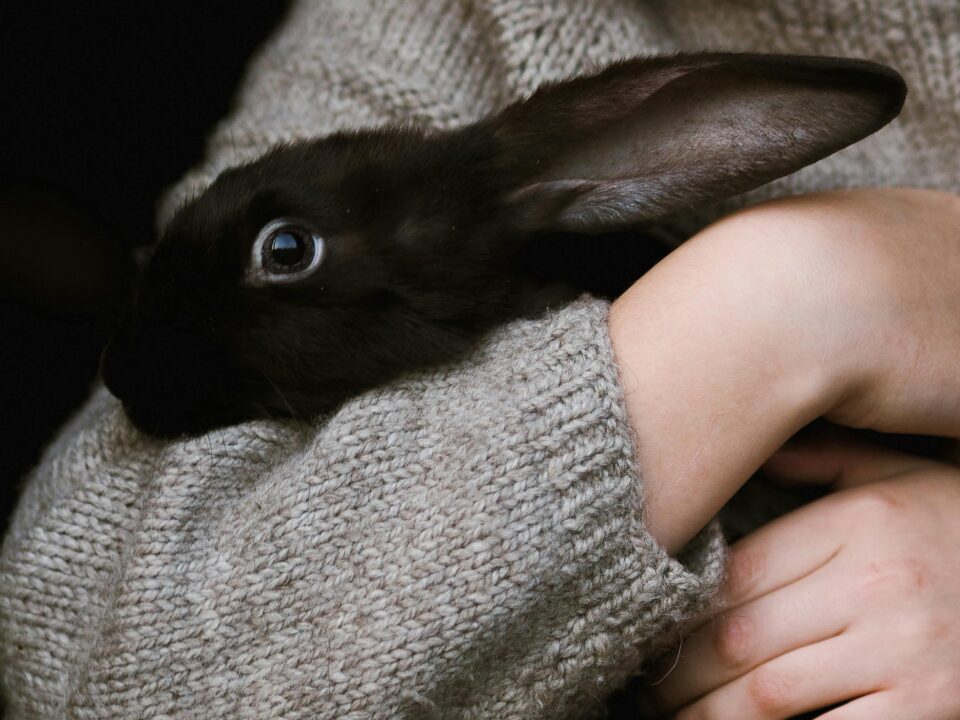Counting our blessings with volunteers like Donna Lagomarsino
March 14th, 2014

With over 3,000 trained and active RedRover Responders volunteers, it takes a special kind of person to stand out as a leader. Donna Lagomarsino is one of those leaders; she uses her special skills as an educator and workshop facilitator to train future volunteers. Learn what she had to say when we interviewed her about her experience volunteering with RedRover.
In looking at your volunteer profile, it appears that were first trained as a RedRover Responders volunteer in Montreal in 2009. Is that correct?
Yes, that is correct. By 2009, I had spent 2 years establishing and volunteering with our local County Animal Response Team (CART). But, I felt that I needed to be part of a bigger picture and I realized that meant response at the national level. After doing a bit of research, I found that there were opportunities available to me with the appropriate training. Because there were not a lot of training workshops in the northeast, I made the decision to travel to Montreal so that I could take advantage of the (previously named) United Animal Nations Volunteer Training Workshop. It was at that workshop that I recognized how deep my passion really was, and in addition to becoming a volunteer, I also wanted to become experienced enough to become a teacher/facilitator with RedRover Responders.
What made you decide to start volunteering with RedRover Responders? Do you work with animals in your profession or have you volunteered with other animal-related organizations?
Believe it or not, when I made the decision to become a RedRover Responders volunteer, I never had one day of shelter experience. My only exposure to animals was through my own personal pets and through my CART training and experiences. My background is in education. I just recently retired after 33 years of teaching at the elementary and middle school levels. Like many people, my desire to become an advocate for animal welfare and disaster response came shortly after Hurricane Katrina. It was the unfortunate events of that natural disaster that motivated and encouraged me to find a way to make a difference on behalf of animals in need.
How long was it after you trained that you went on your first deployment? Describe your experience on your first deployment. What were some of the challenges or rewards from that experience?
I have had many opportunities to deploy with various organizations, but I believe my first deployment was in Natchez, Mississippi. It was a shelter set up for far more animals than what arrived. I remember thinking that maybe people were finally learning to make emergency plans for their pets, and that is why there were so few animals. I also remember a group of very tiny kittens that we were trying desperately to survive. It was my very first experience learning how to bottle-feed kittens and stimulate their little bodies so they would eliminate, and I came to understand that it was a round-the-clock process. Of course, this deployment felt rewarding as it was an opportunity to help a community in need.
What other disaster or animal handling certifications or training have you received?
I try to take advantage of any training opportunities that are offered. It is a good way to make connections with various groups within the community or on the national level. I feel that the more educated you are, the better qualified you are to respond, and, it’s fun! I have certificates in the following areas: FEMA 100, 200, 700, 800, Hazardous Materials Awareness, Basic Animal Sheltering, Large Animal Response, Slack Water Training, Swift Water Training, Animal Decontamination and Bio-Hazards, and there is probably a few more that I’m forgetting, too.
What made you decide to become a workshop facilitator for RedRover? What do you like most about your role in this capacity?
I was sitting in the front row of my Volunteer Training Workshop in 2009 and made the conscious decision that I wanted to be a workshop facilitator. If I could achieve that, it would mean that I had substantial deployment experience and the knowledge to share with others. There are many things that I love about this role. I love to share my experiences with others. Participants are hungry for information and they want to hear about the same things that I wanted to hear about when I was new to this field. I love being surrounded by participants who are passionate about animals and who come from a variety of backgrounds and experiences. And I love to learn. Volunteers are amazing resources and they always bring new and creative ideas that I find helpful.
What skills do you find are critical to the role of someone volunteering with RedRover Responders?
Some of the most important skills that a volunteer can nurture are communication, flexibility, and open-mindedness. It is important that volunteers be able to communicate with others and recognize that this is key to a successful operation. In addition, it is essential that volunteers realize that things change on a daily basis and flexibility is necessary to survival. Finally, volunteers must embrace the concept that there is more than one way to get a job done. Being open-minded about various procedures will make a deployment more enjoyable and will allow the volunteer to expand their personal approaches.
Do you feel that this kind of training is good for anyone to have?
Absolutely; any training that allows the public to better prepare themselves and their animals for unpredictable events or emergencies is a positive thing. In knowing how to plan for an emergency, a family can ensure its own safety as well as the safety of their pets. It also lessens the need for emergency responders to place themselves in jeopardy to attend to the needs of a family or the community in crisis.
You are a volunteer with several other disaster response organizations. How is RedRover different from the others? What would you like to see RedRover do more or less of?
RedRover specializes in sheltering. Their volunteers are second to none in this area. Volunteers bring a wealth of information, training, experience, and work ethic. Their approach is to create a safe, healthy, clean and loving environment for the animals.
I think that RedRover is different from other organizations because it is smaller. It provides a sense of intimacy that volunteers love. There is a sense that we are all family, and that we care about one another, and that we are easily accessible from the top down. Volunteers also appreciate the fact that RedRover is very committed to honoring the wishes of their donors and how finances are delegated; no wasteful spending, programs that focus on the needs of society’s dilemmas and educating our community – specifically our young students. RedRover is very family and community-oriented with very little emphasis placed on the glitz of the front page headline.
I don’t know if I would like to see RedRover do more or less. I think they are in a good place right now and I think continued nurturing of the programs they offer is to be commended.
What has been your most rewarding experience with RedRover and helping animals?
All of my experiences with RedRover have been rewarding for one reason or another. I suppose one of the most recent deployments that stick in my head was last year’s South Carolina deployment. We were assisting a local shelter with a puppy mill/hoarding seizure. The local shelter had no experience with this type of sheltering effort. To their credit, they did an amazing job in getting it all sorted out and organized, but they were in great need of SOGs (Standard Operating Guidelines). RedRover was able to deploy and, with the lead agency’s blessing, we were allowed to put all of the needed protocols in place. It was also a deployment where the lead agency worked side-by-side with us. The community leaders continually extended their thanks to RedRover. We were included in all of the media briefings. Local businesses donated meals. It was just a wonderful deployment on many different levels.
What would you say makes RedRover different from other animal organizations working in this capacity as it relates to volunteers? Do you have any other comments?
I am exceptionally proud of how RedRover manages its volunteers. Too many times, I have seen volunteers taken advantage of or not being acknowledged for their contributions while on a deployment. RedRover has made a solid commitment to make sure that the animals and volunteers are their first priority. Through communications, training, follow-ups, allowing volunteers to be heard, making themselves available to volunteers for counseling while on deployment, or making time to simply chat with a volunteer, RedRover truly embraces its volunteers. It is important to every volunteer that their work be validated and their voice be heard on any concern or feeling that they have. RedRover does a wonderful job of making that happen, whether it is in the office or through its Emergency Services Manager and team leaders on site.



